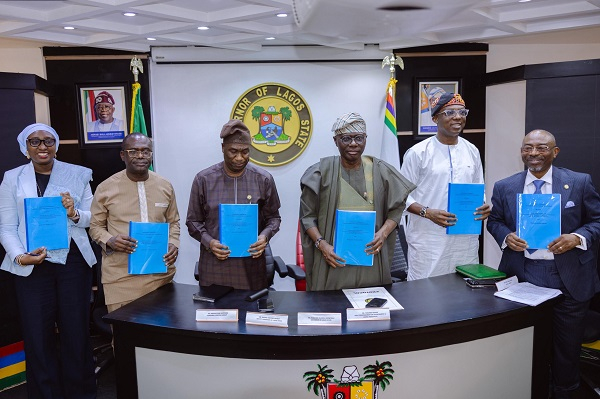The Lagos State Government has commenced a comprehensive review of the Obas and Chiefs Law of 2015 to address gaps in the existing laws.
The Attorney-General and Commissioner for Justice, Lawal Pedro (SAN), disclosed this on Wednesday at a stakeholders’ meeting held in Alausa, Ikeja.
The Commissioner described the review as a deliberate move by Governor Babajide Sanwo-Olu’s administration to modernise the law in line with current realities and good governance.
Pedro lamented the erosion of respect for traditional institutions, blaming it on a combination of misconduct, proliferation of unverified chieftaincy titles, and prolonged litigation over succession rights.
He said: “Our royal fathers remain symbols of cultural continuity and community leadership.
“But today, with due respect, the institution is under threat from land grabbing, unlawful upgrades, and chieftaincy titles not rooted in the community’s customs.”
The Commissioner added that the review was aimed at addressing gaps in the existing law and redefining the roles of traditional rulers to include conflict resolution, peacekeeping, and partnership in community development.
Also Read:
According to him, the proposed amendments will formally recognise traditional rulers as partners in maintaining law and order, mediating disputes, and conveying government policies to grassroots communities.
Pedro added: “The law must evolve.
“Our Obas can help reduce crime by mediating disputes, gathering public feedback, and promoting community initiatives.
“Also, there is a need to restore integrity to the process of conferring chieftaincy titles.
“Only persons of proven honour and community ties should be eligible.
“This process is about partnership, not imposition as we want a law that preserves heritage while promoting justice, peace, and good governance.”
The News Agency of Nigeria (NAN) reports that many traditional rulers across the state attended the meeting and made inputs on the proposed amendment.
They unanimously urged the state government to give them one month to study the proposed bill to give quality feedback.
The traditional ruler of Ikorodu, Oba Kabiru Shotobi, called for greater legal clarity on the status of divisional and provincial chieftaincy councils.
He urged the state government to act against individuals falsely parading themselves as Obas.
Shotobi said: “We want a clear legal distinction between traditional and provincial councils.
“We have reported impostors multiple times, yet no action has been taken.
“This must stop.”
The traditional ruler also objected to any attempt to alter the current leadership structure of the State Council of Obas, which recognises four vice-chairmen from the state’s four traditional divisions.
He insisted that local Chief Transit Committees should be consulted before any appointments are made at the state level, urging the government to ensure chiefs are not excluded from the ongoing reform.
Shotobi requested one month for traditional rulers to review the draft law and return with coordinated input.
He also asked for a legal framework to give recognition to traditional dispute resolutions handled within palaces.
He said: “Our decisions are sometimes ignored in court due to lack of legal backing.
“We need enabling laws to make our rulings count.”
Earlier in his welcome remarks, the Solicitor General and Permanent Secretary, Ministry of Justice, Hammed Oyenuga, said the forum presented a rare chance for collaboration among stakeholders in traditional governance.
“This gathering presents a unique opportunity for robust dialogue, reflection, and collaboration as we seek to strengthen the law that directly impacts our revered traditional institutions and the communities they serve,” he said.
Oyenuga further said that the law must be updated to align with contemporary realities, while respecting cultural heritage.
The meeting ended with a consensus for further deliberations within four weeks before the final amendments were submitted.
Post Views: 7








